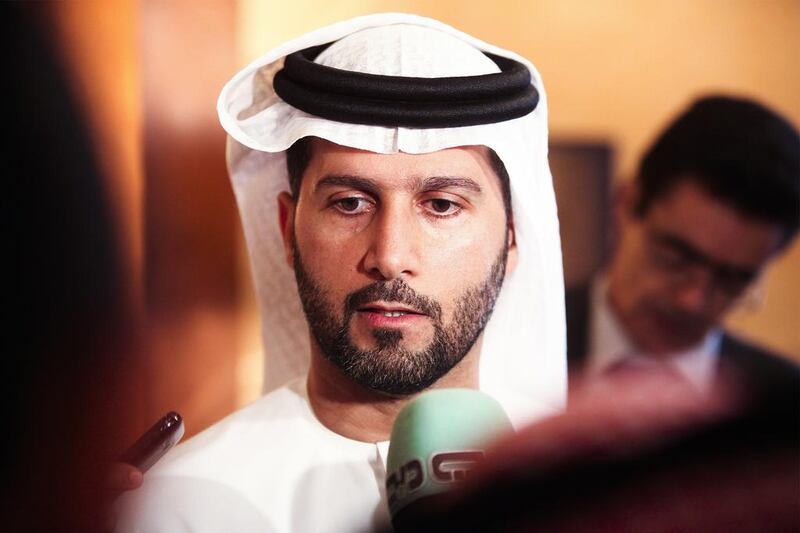ABU DHABI // Cooperation and shared knowledge must be at the forefront of developers’ priorities as the nuclear energy programme gains momentum.
That was the message on the first day of the New Nuclear International Conference.
International experts and policymakers will discuss critical aspects of the industry during the four-day event, with a focus on safety and sustainability.
“It is encouraging to see that 34 countries are being represented at this conference,” said Mohammed Al Hammadi, the chief executive of the Emirates Nuclear Energy Corporation.
“We are here today to demonstrate our adherence to one of the key pillars that form the foundation of the nuclear energy industry: to continue to improve and to learn from our colleagues in doing so.
“This is why I am particularly glad to announce that our programme to safely deliver four nuclear energy plants, pending regulatory approval, has achieved 23 per cent completion rate and that our first two units are already 35 per cent completed and are being constructed safely, on time and within budget.”
Invited officials were given a tour of the Barakah Unit 1 nuclear plant building site before the conference, where they were shown the recently installed containment liner plate, which will provide a defensive barrier for the reactor.
“We must construct it to the highest standards of safety and security,” said Mr Al Hammadi.
“We must learn and improve from our colleagues. Fukushima was an example of the need for safety and security in the industry. The sector must be continuously improved.
“The nuclear energy sector has also made significant improvements in the efficiency of the construction of power plants while continuing with strict safety and security regulations.
“In the case of the UAE peaceful nuclear energy programme, modular construction, intelligent and efficient management and a close collaboration between the project owner and its prime contractor have been key in keeping the project on time and on budget.”
The Minister for Energy, Suhail Al Mazrouei, said there was a need for improved methods of electricity production with energy demand expected to be 40,000 megawatts by 2020.
“We are moving decisively forward with an energy portfolio that is adequately diversified, and balances our need for a constant and growing electricity supply with our responsibility to implement cleaner, low-carbon technologies,” he said.
“The UAE’s peaceful nuclear energy programme is a project of strategic importance for our nation and is a major step forward in the achievement of a long term-driver energy portfolio that guarantees security of supply and dependable electricity.”
The message was echoed by industry members from around the Arab world.
“Safety first, with a transparent industry and with help and cooperation from the rest of the world,” said Dr Muhammad Garwan, the atomic energy team leader from KA-CARE Saudi Arabia.
“We want to adhere to the highest standards from around the world. We must also pay attention to the development of human capacity – to make sure that manpower is available to the direct and supporting industry.
“We must also make sure that we are an employer of choice.”
Speaking today at the conference are David Scott from the Abu Dhabi Executive Affairs Authority, who will discuss energy policy development in the UAE; Dr John Loy, deputy director of general operations at the Federal Authority for Nuclear Regulation, who will explore regulatory issues related to the industry; and representatives from Jordan, the United States and China, who will offer their insights on the global progress of the nuclear industry.
ksinclair@thenational.ae





